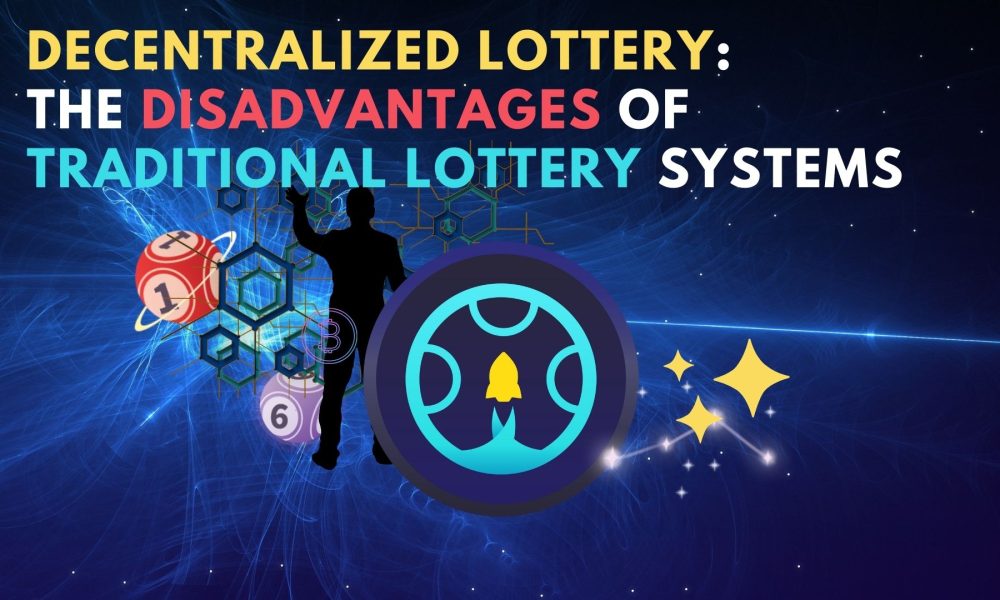Traditional lottery systems have been a longstanding source of entertainment and hope for millions around the world. However, these systems come with a set of inherent disadvantages that have persisted for generations. The emergence of decentralized lotteries provides an opportunity to address and overcome many of these issues. This essay explores the disadvantages of traditional lottery systems that decentralized lotteries aim to mitigate.
Lack of Transparency
One of the primary drawbacks of traditional lottery systems is the lack of transparency. The drawing process, winner selection, and fund distribution are often conducted behind closed doors, leaving room for suspicion and mistrust.
Risk of Fraud
Traditional lotteries are susceptible to fraudulent activities. Whether through tampered drawings or unscrupulous organizers, the risk of fraud has tarnished the reputation of traditional lotteries.
Centralized Control
Traditional lotteries are typically controlled by a central authority, such as a government or private organization. This centralization of control can lead to concerns about fairness, bias, and manipulation.
Manual Processes
Traditional lotteries often rely on manual processes for drawing numbers, verifying tickets, and distributing prizes. These manual steps can lead to errors, inefficiencies, and delays.
Limited Accessibility
Access to traditional lotteries is primarily through physical ticket purchases. This can be inconvenient, especially for individuals who live in remote areas or have mobility challenges.
Lack of Privacy
When winning a traditional lottery, many winners must publicly reveal their identities. This lack of privacy can expose winners to unwanted attention and security risks.
Inefficiency and High Costs
Traditional lotteries can be inefficient, with high overhead costs, such as printing and distribution of physical tickets, marketing, and administrative expenses. These costs can reduce the percentage of funds that actually go toward prizes and charitable causes.
Limited Innovation
Traditional lotteries have been slow to adapt to technological advancements. They often lack innovative features, such as automatic ticket verification, smart contract automation, or community-driven governance.
Conclusion
Traditional lottery systems have long been marred by issues related to transparency, fraud, centralization, and limited accessibility. Decentralized lotteries, driven by blockchain technology and cryptocurrency, offer a promising solution to many of these disadvantages. By providing transparency, security, efficiency, and global accessibility, decentralized lotteries aim to address the shortcomings of their traditional counterparts, reimagining the lottery experience for the digital age.
…
MegaMoon is launched on Polygon blockchain and uses USDT in ecosystem that regulated by smart contract and our platform has successfully passed the safety standard audit from Certik Audit. Therefore, all players can be assured that MegaMoon is transparent and no one can interfere with the prize draw thanks to the Chainlink VRF system. In addition, MegaMoon has a Treasury system that allow players do not pay blockchain gas fees.
Please follow MegaMoon for more informations !!
MegaMoon Website: https://megamoon.space/
MegaMoon Twitter: https://twitter.com/0xMegaMoon
MegaMoon Medium: https://medium.com/@0xmegamoon
MegaMoon community: https://t.me/Oxmegamoonchat
